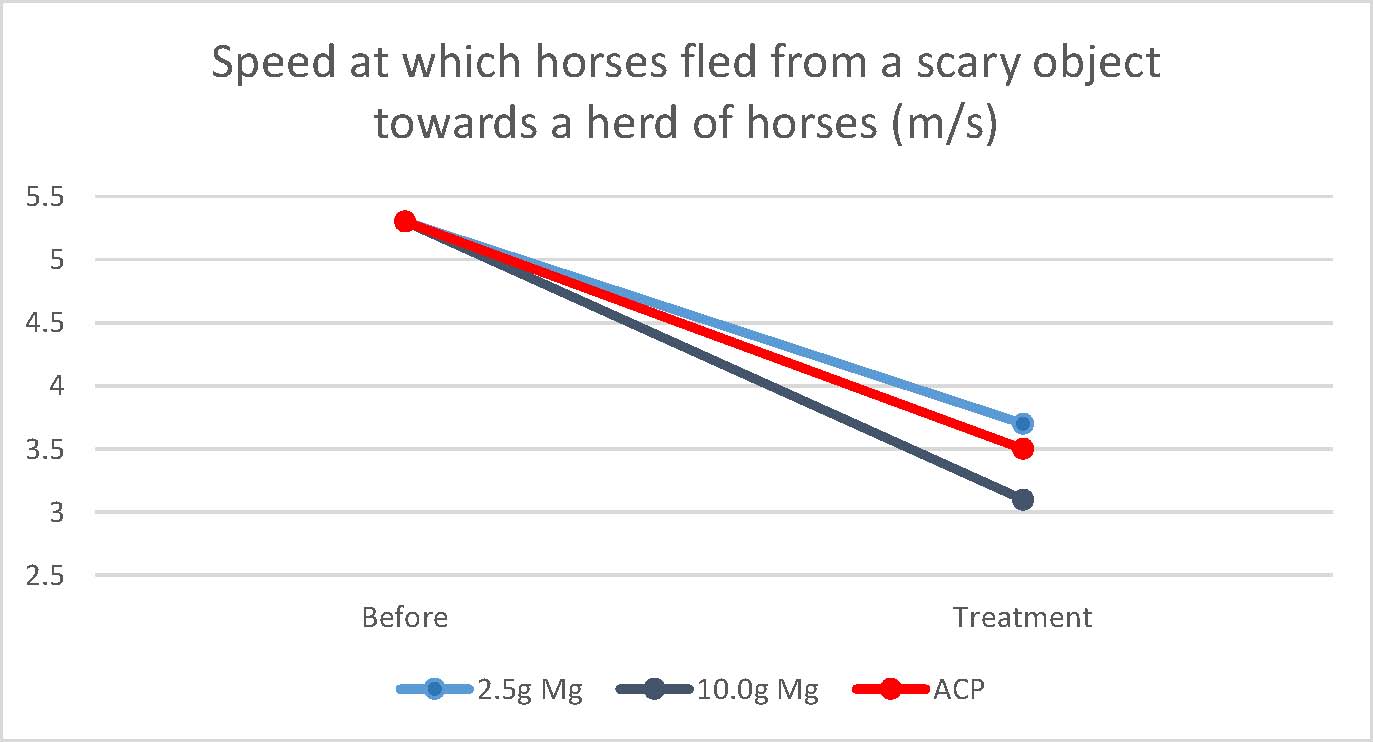
Study conducted by Jess Dodd
Magnesium is a sedative. It has been used in anaesthesia in both horses and humans for decades. The mechanisms by which it has this effect are pretty well understood (blocking NMDA channels and calcium receptors). In effect it prevents the normal switching on of cellular processes inside cells all over the body. When this happens in the brain, the horse is sedated; think of it as a chemical brain impairment. It is because of these issues, injectable magnesium is on the FEI’s prohibited substances list.

There is a very reasonable question to ask. Can we achieve a similar sedative effect with oral magnesium? Jess Dodd in Australia has gone a long way to suggesting we can. She measured how fast horses ran away from an acute scare and compared the effect of magnesium supplementation with the veterinary sedative Acepromazine (ACE, ACP, Sedalin). She then found similar results when using both 2.5 grams and 10 grams of magnesium.
At the time of writing Jess has not finished her PhD and the only published information on her research (except that written by the project sponsors Mars Horsecare) can be found in the Journal of Equine Veterinary Science 35 (2015) 401-402. Here it was published as two abstracts as Jess was invited to present her findings to the Equine Science Society conference in Florida in 2015.
